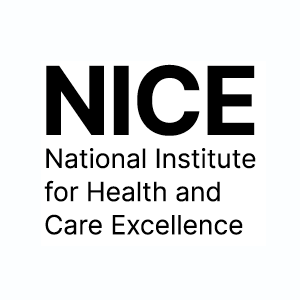Fertility clinics should not offer unproven treatments that don’t help people have babies, our independent committee has recommended in draft guidance.
The updated recommendations specifically advise against several popular fertility “add-ons” that are being offered to those having private and NHS fertility treatment in the UK, despite no clear evidence that they work.
The draft guideline also recommends offering fertility preservation to a wider range of people who are undergoing a medical treatment that might affect their future chances of having a baby. Currently this is mostly offered to patients with cancer.
The guideline committee heard how almost three quarters of patients have said they are using additional tests, treatments, or emerging technologies, according to the Human Fertilisation and Embryology Authority (HFEA), despite most not being proven to work. This includes add-ons such as time-lapse imaging and complementary therapies such as acupuncture. Only 37% of patients said their clinic explained the risks of add-ons.
The new draft guidance specifically recommends against several treatments including:
intracytoplasmic sperm injection for men with healthy semen – where a sperm is directly injected into an egg in a laboratory
endometrial scratch – where the womb lining is “scratched” before IVF treatment
hysteroscopy as a pre-treatment means of improving the outcome of IVF
endometrial receptivity testing as a treatment add-on for embryo transfer – tests on the lining of the womb.
Too many people hoping to start a family are being offered expensive treatments that simply don’t work. These add-ons can give false hope and put people through unnecessary procedures at what is already a very difficult time. Our guidance makes it clear that fertility clinics should only offer treatments that are proven to help patients achieve their aim of having a baby.
Professor Jonathan Benger, chief medical officer and interim director of the centre for guidelines at NICE
The guidance emphasises that patients should be given full information about any treatments, including how likely they are to work and what risks they carry.
People going through fertility treatment are often willing to try anything that might help them conceive. This makes them vulnerable to being offered treatments that sound promising but haven’t been properly tested. Our recommendations are designed to protect patients and ensure they only receive care that we know works. Clinics should focus on providing proven treatments rather than offering unproven add-ons that may do more harm than good.
Dr Fergus Macbeth, chair of the fertility problems guideline committee
NHS fertility preservation services
The updated draft guidelines have significantly broadened who can access NHS fertility preservation services, available to people who are preparing for medical treatment, or has a medical condition, that is likely to impair their fertility.
Previously, these services were mainly available to people with cancer, but the new recommendations extend support to anyone facing medical treatments or conditions that could harm their ability to have children in the future.
This includes people undergoing treatments like chemotherapy or radiotherapy, those with conditions affecting their reproductive organs such as severe and recurrent endometriosis, or anyone whose medical situation poses a risk to their fertility.
These updated recommendations represent a significant step forward in making fertility preservation more accessible and equitable for everyone who needs it.
People undergoing potential treatment which could affect their fertility should have a conversation with their healthcare professional about the options available to them to preserve their opportunity to have children in the future.
Dr Fergus Macbeth, chair of the fertility problems guideline committee
Dr Fergus continued: “By expanding these vital services beyond cancer patients to include anyone facing medical treatments or conditions that could affect their future fertility, we’re ensuring that people of all ages – from children to adults – can access the support they need to protect their reproductive options.”
IVF recommendations
The updated draft guideline specifies who should be offered IVF treatment, making the criteria clearer for both patients and healthcare providers. It also emphasises the need for proper discussions about treatment options, including the benefits and risks.
The independent guideline committee found stronger evidence than has previously been available that three full cycles of IVF give couples a good chance of a baby, and the treatment represents good value for the NHS.
The updated guidelines recommend:
three full cycles of IVF for women under 40 if they have fertility problems and meet certain criteria
one full cycle of IVF for women aged 40 and 41 if they have fertility problems and meet certain criteria.
The evidence considered by our committee demonstrates that providing three IVF cycles to women under 40 with fertility problems offers them a good chance of a successful pregnancy. We recognise the NHS faces significant financial challenges, and integrated care boards must weigh up local priorities when determining how many IVF cycles to fund.
Professor Jonathan Benger, chief medical officer and interim director of the centre for guidelines at NICE
Next steps
The draft guideline is open for public consultation until Tuesday 21st October. NICE’s guideline committee will consider all feedback received before publishing the final recommendations next year. The consultation document and details of how to respond are now available.

